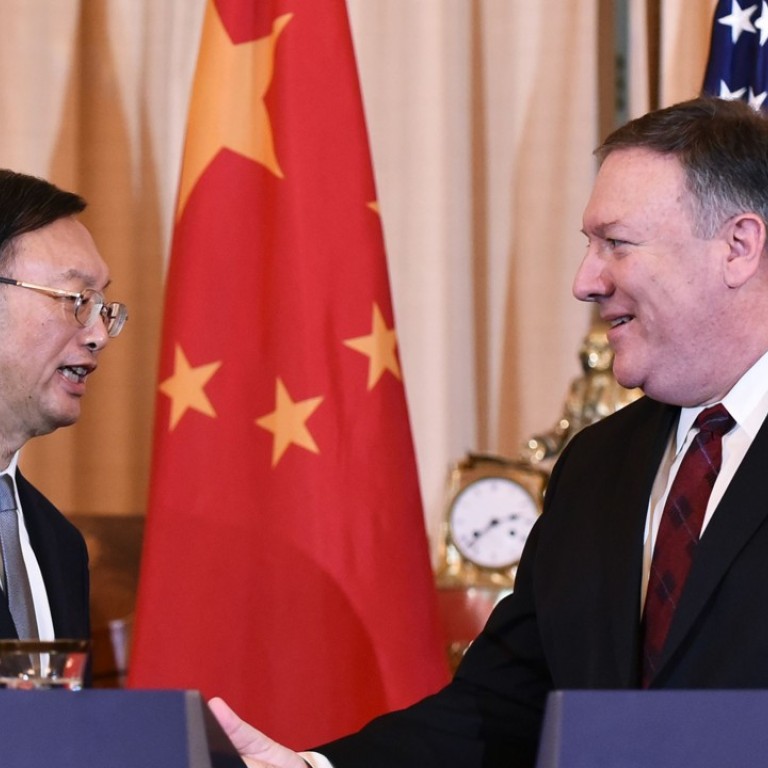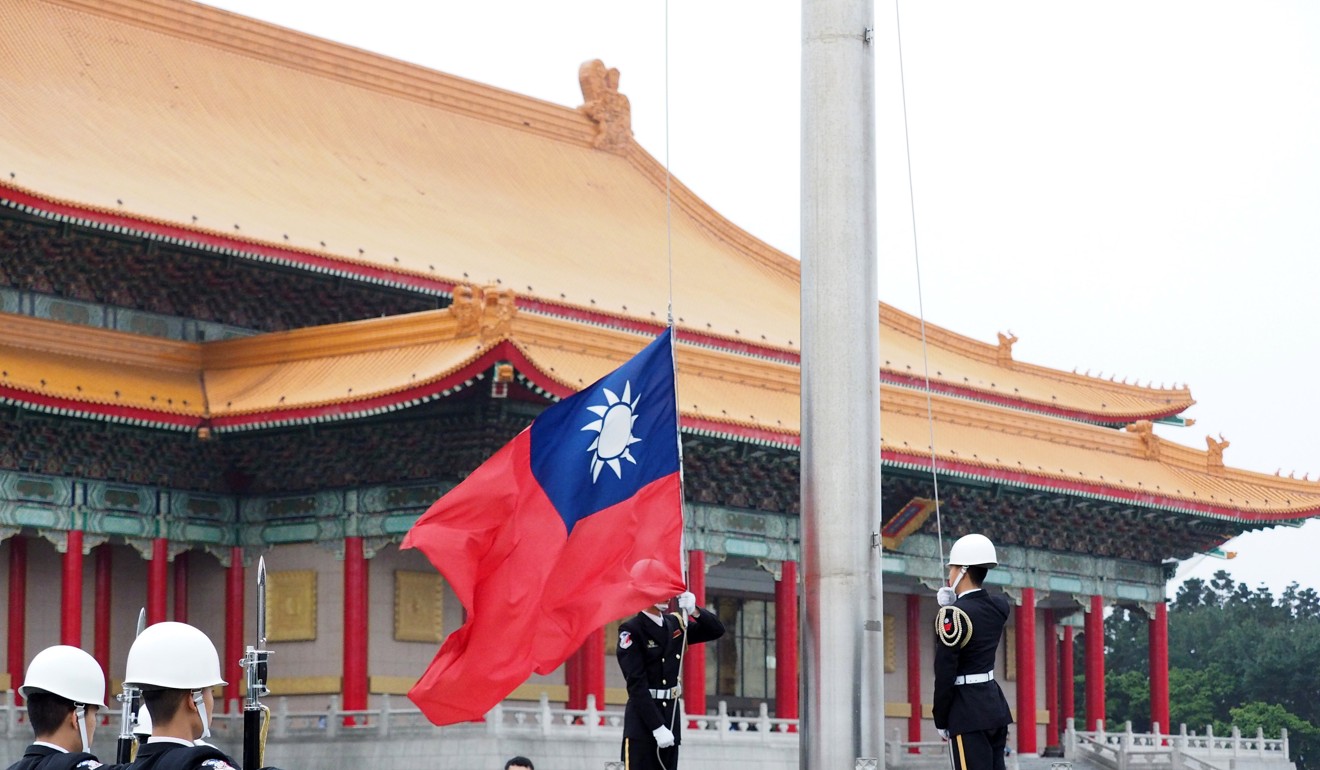
US isn’t following cold war or containment policy towards China, Secretary of State Mike Pompeo insists
- Senior diplomats and defence officials spell out differences on issues such as South China Sea, Taiwan and human rights but stress need to continue cooperation
- Washington talks intended to prevent tensions escalating further before Trump-Xi meeting in Argentina at the end of the month
US Secretary of State Mike Pompeo has insisted that Washington is not “pursuing a cold war or containment policy” towards China following high-level talks between diplomats and defence officials on Friday.
Both sides used the dialogue to set out their main areas of concern – including the South China Sea, Taiwan and human rights – but insisted that they were not trying to undermine each other.
Pompeo said the US wanted “to ensure that China acts responsibly and fairly in support of the security and prosperity of each of our two countries”.
Diplomatic observers said the talks were designed to allow diplomats to spell out their red-line issues to stop tensions escalating further before Donald Trump and Xi Jinping’s meetings on the sidelines of the G20 summit in Argentina at the end of the month.
“It is of utmost importance that they are talking to make sure that the trade war doesn’t turn into a hot war,” former Mexican ambassador to China Jorge Guajardo said. “It’s important that they address each others’ red lines.”
Pang Zhongying, an international relations professor at Ocean University of China, said China wanted to stabilise relations with the US as it celebrates the 40th anniversary of its reform and opening up.
“China wants some positive development regarding its ties with the US now as the two nations established diplomatic ties 40 years ago,” he said, referring to the US switching to recognise Beijing on January 1 1979.
“If ties with the US continues to deteriorate, this would be a big contrast to what happened 40 years ago”.
The dialogue was attended by China’s top diplomat Yang Jiechi, who is also a Communist Party Politburo member, US Secretary of Defence James Mattis and his Chinese counterpart Wei Fenghe.
China hawk Navarro tells would-be brokers of trade war truce to ‘stand down’
In a press conference afterwards, officials from both nations said they needed to cooperate further and pledged to introduce confidence-building measures between their respective armed forces.
“Even as our countries confront important differences in the bilateral relationship between the nations, our cooperation remains essential on many, many central issues,” Pompeo said.
But their differences over issues such as the South China Sea, Taiwan and human rights became apparent during the talks in Washington.
Yang said the Chinese side had demanded the US stop sending military vessels and aircraft to islands claimed by Beijing in the South China Sea, where two warships nearly collided in September.
“To pursue militarisation in the region will not only undermine the interests of regional countries, but will hurt the countries who take these actions themselves,” he said.

The US rejected the demand, with Mattis saying the US would continue operating in international waters and called on China to act professionally over the disputed areas.
“We also discussed the importance for all military, law enforcement, and civilian vessels and aircraft, including those in the PLA Navy, the Chinese Coast Guard, and the PRC Maritime Militia, to operate in a safe and professional manner, in accordance with international law, as we seek peaceful resolution of all disputes in the South China Sea,” he said.
The Chinese side also repeated its position that Taiwan was an “inseparable part from China”, and cited the US pledge of allegiance as justification.
Washington talks unlikely to change course of China-US rivalry
Wei pointed out that the pledge states the US is “one nation under God, indivisible”, adding: “It is the same with Taiwan. It is an inalienable part of China.
“So if this territorial integrity is under threat, we will defend it at any cost just as the US did in the civil war.”
But Pompeo said Beijing should restore cross-strait stability and respect Taiwan’s international space.
“The United States opposes unilateral actions by any party aimed at altering the status quo, including any resort to force or coercion,” the secretary of state said.
On human rights, Pompeo voiced concern over China’s treatment of religious minorities, including the mass detention of Uygur Muslims in Xinjiang. But Yang said the issue was an internal affair and foreign countries had no right to interfere.
Tensions between the two sides have been rising since July, when the US kicked off the trade war by slapping tariffs on Chinese goods – a move that lead to an immediate retaliation.
Since then the US has accused China of a wide range of offences, including commercial espionage and interfering with domestic politics.
Speaking at another event on Friday, White House trade adviser Peter Navarro said Wall Street executives attempting to broker a truce to end the trade war should stand down, saying they were “unregistered foreign agents”.
US officials reject Chinese demand to stop moves in South China Sea
However, Pompeo said China and the US should cooperate on North Korea and Iran, while Mattis said the two sides should work on areas of common interest.
“Competition does not mean hostility, nor must it lead to conflict,” he said.
Zhang Baohui, a security analyst at Lingnan University, said: “The contentious issues will not be settled because their stances and interests are very different … but the talks mean that they want to continue cooperation.”


